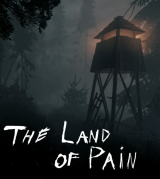Review for Who Pressed Mute on Uncle Marcus?

Popular culture can’t seem to get enough of depicting super-rich families treating each other like dirt. We find ourselves in a renaissance of sorts with shows like Succession and The White Lotus making awful people fun to watch. Seeing folks with more money than they know what to do with become so damaged by their wealth and privilege that they create a train-wreck spectacle makes it almost impossible to turn away. Who Pressed Mute on Uncle Marcus? takes this same route by placing you in the midst of a family so vile, they would fit right in on any given Sunday night on HBO Max. It makes for a mildly entertaining live-action whodunit with solid acting performances, at least at first, though player agency is so limited, you’ll often be hard-pressed to tell it isn’t just another hour-long TV show.
Who Pressed Mute on Uncle Marcus? is more of an interactive movie than a game, but even the interactivity is close to zero. The bulk of your experience is spent watching a cringeworthy Zoom-type call featuring a group of relatives so horrible to each other that it’s surprising they did not gestate in the mind of George R.R. Martin. Occasionally you will need to make a choice, and a timer bar will show at the bottom of the screen. These options are of two types: you will either need to decide which character to break away with and engage in a private chat, or choose between 2-3 responses within these chats in the hope of prying information to help you figure out what happened to Uncle Marcus.
The game was developed by Good Gate Media and published by Wales Interactive, a collaboration that has resulted in several similar FMV titles already, including The Complex and Night Book. This one features some familiar faces: fans of The Office, in particular, will recognize Uncle Marcus immediately. Andy Buckley, who played Dunder Mifflin’s CFO David Wallace, is cast in the titular role and does a great job playing up the goofiness of the script without going overboard. Abigail Hardingham plays Abby, the character you essentially control. Eileen Davies, Susannah Doyle, Gabrielle Glaister, Robbie Kay, Georgia Small, and Al Weaver fill out the remaining cast, all doing serviceable jobs playing cartoonish versions of entitled and all-around dreadful people.
The story is experienced from the perspective of Abby, who’s getting ready to join her family’s video call. Each year for her mother’s birthday, they get together online so that everyone can take turns quizzing one another on subjects of their choosing. Abby’s mother, for example, bizarrely hums classical songs and everyone tries to guess the composer and name. Right before this year’s meeting is scheduled to take place, however, Abby receives another video call from her Uncle Marcus. He tells her that he was poisoned by another family member at a recent in-person gathering, one in which Abby was unable to attend. With limited hope for a cure and his health rapidly failing before your eyes, Marcus enlists your help to do three things: find the poison, find the proof, and find the perpetrator before time runs out.
The family in question is quite the doozy. There are six members in total, excluding Abby and Uncle Marcus, five of whom are ghastly in their own way. There’s Abby’s mom, who fancies herself an entertainer that could have been a famous actress and singer if she so chose. Aunty June is a stereotypical mean lush clutching a chalice of wine in her hand that’s almost as big as the Stanley Cup. Lottie, Abby’s social-media-obsessed sister, is continually glued to her phone. Toby, Aunty June’s oldest child, cosplays as an environmental activist; while Bradley, June’s youngest, is obsessed with serial killers and murder memorabilia. The only seemingly normal person is Nan, the elderly matriarch concerned with keeping the family together and smoothing out the others’ sharp edges.
You won’t learn much about what happened at the fateful earlier event from Marcus, but we do know it was important and that the family business was discussed. As the game progresses, you will discover more about the meeting you missed, as well as the skeletons these appalling people have been trying their best to hide, all without leaving the comfort of Abby’s computer. In order to complete your three objectives, you must discreetly interrogate the other party members. Fortunately the quiz is done in teams of two, so you are able to question some of them privately. There are four rounds in total, comprising a varying number of questions to answer, with three people to choose from before each round starts. With six potential suspects overall, this means you won’t have the opportunity to question everyone individually.
Between quiz questions, you have the chance to chat up your current partner for information. Even after a question is posed, you can sometimes choose to ignore it and ask something related to Marcus and the meeting instead. Occasionally Marcus will call to interrupt, looking and sounding worse and worse, a visible health bar reflecting his deteriorating condition as he urges you to press on to find his would-be killer. Whenever you uncover a detail vital to the case, an icon will appear bottom of the screen letting you know that a new piece of evidence has been found, which you can bring up to look at any time.
When enough pieces of information against a certain family member have been collected (usually at least four), you can accuse them. Beware, though, as you can accuse the wrong person and a scene will play out with them explaining their innocence, ending the game. The catch is, given the limitations you face, it would be very difficult to learn the killer’s identity in a single playthrough. You would have to get lucky and make all the correct dialog choices in order to unlock that person as an option to accuse. Instead, the game is made to be played on a loop. Each time the story ends, the credits roll but the evidence you collected is saved and available to consult for your next go-round.
This is where multiple problems come into play. Playing through each scene repeatedly gets quite tiresome, and each family member is such an over-the-top caricature of an awful person that being subjected to them over and over again makes it very hard to want to continue and get the true ending. There is new content available on subsequent playthroughs, as you’ll make different choices and get to chat with those you weren’t able to originally, but there will still be a fair bit of repetition. Thankfully you can skip over certain portions of the dialog once you’ve played through the game once, but that’s only if you have made the exact same choice in the exact same spot. Otherwise you’ll have to sit through the scene again.
Another issue has to do with the choices you are presented with and the answers you get to choose from. There are only ever two or three at a time, and it all seems very arbitrary, like the correct answer is only the right one because that’s the way the story was written. Everything is guesswork and trial and error, and there’s never a way of knowing what result an answer will trigger. A seemingly perfectly reasonable choice can lead to a useful bit of info, some completely inconsequential chatter, or even an abrupt end to the current quiz round. After three or four playthroughs of not choosing properly and not having the option of selecting more than two family members to accuse, I took a pen and pad and made decision branches of each round. Once I unlocked each piece of evidence in that round, I would move on. If not, I would start over and choose differently. It sucks the fun out and makes playing a chore.
That’s not to say there aren’t any positive aspects to appreciate here. The game looks and plays very smoothly, and it certainly has its moments of amusement. If you’re a fan of satire, you should enjoy the extreme depictions of bad people that both the script and acting provide. The story even does a good job of highlighting things that make video calls so awkward. There’s a funny bit towards the beginning of the game where Nan’s camera is fixed on the top of her head and everyone else is trying to get her to pan it down so her whole face is showing, something anyone with an elderly relative can probably relate to. Watching people who clearly do not like each other constantly bicker while being forced to sit through a video call for a quiz they all seem to hate, even as Marcus grows ever closer to death until his poisoner is exposed, will surely hold your interest until the novelty wears off.
The campy, tongue-in-cheek nature of the family interactions can make Who Pressed Mute on Uncle Marcus? fun to play through the 45 minutes at most to reach the end the first time through. It’s a shame, then, that the insistence on making you play multiple times, with so little to do and so much repetition and guesswork and time spent with such thoroughly unpleasant people, results in an experience that wears out its welcome long before you’re likely to find the culprit.




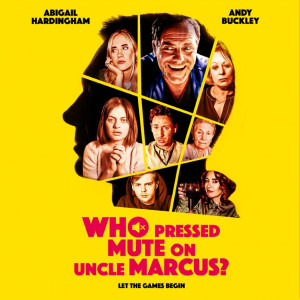






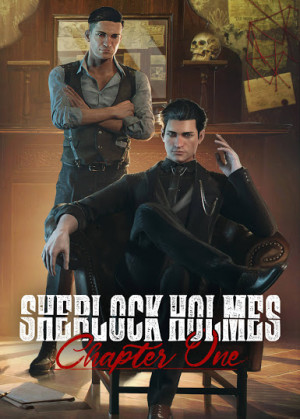

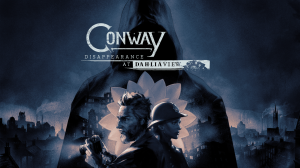




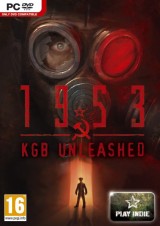


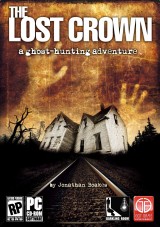

__small.jpg)


